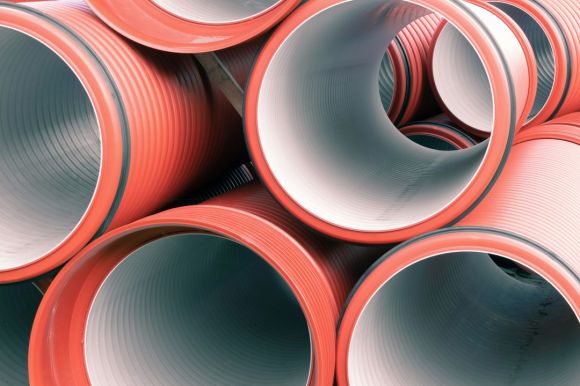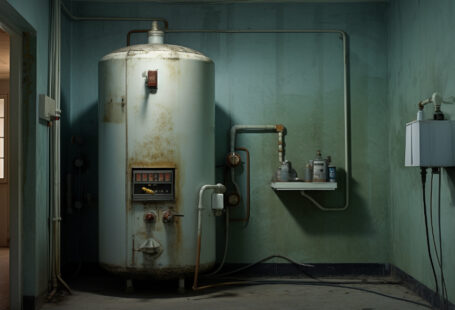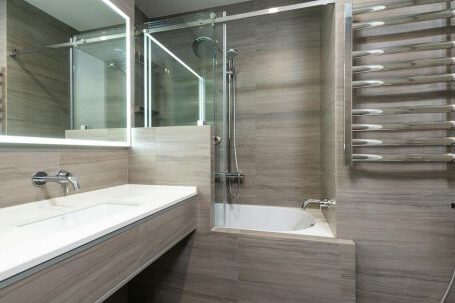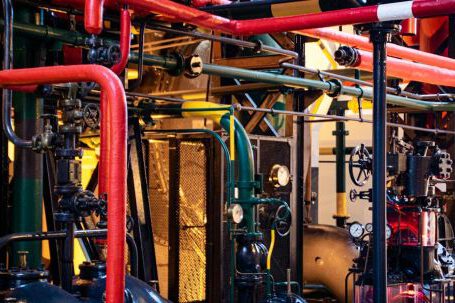As the seasons change, so do the needs for pipe insulation in our homes and buildings. Proper insulation is crucial to prevent damage to pipes and ensure efficient energy use. In this article, we will explore the different insulation needs that arise during each season and provide helpful tips for maintaining a well-insulated plumbing system.
Winter: Protecting Against Freezing Temperatures
Winter brings freezing temperatures, which pose a significant threat to unprotected pipes. When water freezes, it expands and puts pressure on the pipes, leading to cracks or bursts. To prevent this, it is essential to insulate both interior and exterior pipes.
Interior pipes, such as those under sinks or in unheated areas, should be wrapped with foam insulation sleeves. These sleeves provide a barrier against the cold and keep the pipes insulated. Additionally, opening cabinet doors to allow warm air to circulate around the pipes can help prevent freezing.
Exterior pipes, such as those in the garden or exposed to the elements, need special attention. Insulating outdoor pipes can be done using heat tape, which is wrapped around the pipes and provides constant heat to prevent freezing. It is also vital to drain and disconnect garden hoses to prevent water from freezing and causing damage.
Spring: Preparing for Thawing and Increased Moisture
As winter transitions into spring, temperatures begin to rise, and the snow and ice start to melt. This transition can lead to an increased risk of water damage due to thawing pipes and increased moisture levels. Insulation plays a crucial role in preventing water damage during this season.
Inspecting and repairing any insulation damage caused by freezing temperatures is important. Check for any cracks or gaps in foam insulation sleeves and replace them if necessary. Additionally, ensuring that the insulation is properly sealed and in good condition will help prevent moisture buildup around pipes.
Furthermore, proper ventilation in areas prone to moisture, such as basements and crawl spaces, is essential. Good airflow will help prevent condensation and reduce the risk of mold growth. Installing dehumidifiers can also aid in maintaining a dry environment.
Summer: Energy Efficiency and Heat Prevention
In summer, the focus shifts from protecting against freezing temperatures to maintaining energy efficiency and preventing heat buildup. Insulation is key to achieving these goals.
Insulating hot water pipes reduces heat loss and decreases the amount of time it takes for hot water to reach the desired temperature. This not only saves energy but also reduces water waste. Insulating the cold water pipes helps to prevent condensation and keeps the water cool.
In addition to pipe insulation, proper insulation of walls and ceilings helps to maintain a comfortable indoor temperature. This reduces the reliance on air conditioning and lowers energy costs. Insulating attics and crawl spaces can also help prevent heat from transferring to the pipes, ensuring they remain at a suitable temperature.
Maintaining Insulation Year-Round
While seasonal changes bring specific insulation needs, it is crucial to maintain insulation year-round to protect the plumbing system. Regularly inspecting the insulation for any signs of wear or damage is essential. Replace any damaged insulation promptly to ensure the pipes remain properly insulated.
Furthermore, educating oneself about the specific insulation needs of the local climate and plumbing system is vital. Consulting with a professional plumber can provide valuable guidance and ensure that the insulation measures taken are appropriate for the specific needs of the home or building.
In Conclusion
Seasonal changes require us to adapt our pipe insulation needs accordingly. From protecting against freezing temperatures in winter to maintaining energy efficiency in summer, insulation plays a crucial role in preventing damage and ensuring the optimum performance of our plumbing systems. By staying proactive and taking the necessary steps to insulate our pipes, we can enjoy a well-functioning and efficient plumbing system throughout the year.



